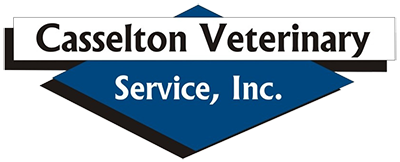Illustrated Articles
-
Neuroendocrine tumors are a group of tumors that develop from the cells of the neuroendocrine system, and include insulinomas, gastrinomas, glucagonomas, carcinoids, medullary thyroid carcinomas, small-cell lung carcinomas, pheochromocytomas, chemodectomas, and Merkel cell carcinomas. This article discusses signs, diagnosis, treatment, and prognosis.
-
Neutering and castration are the common terms used to describe the surgical procedure during which both testicles are removed to sterilize a male dog. The consensus at this time is that neutering will increase the lifespan of a dog. It is also a vital step in reducing the overpopulation of dogs and the crowding of shelters. This operation requires general anesthesia and complications are rare. A rest period of 5–10 days is needed for recovery after surgery.
-
Niacinamide is given by mouth and is used off label to treat inflammatory skin conditions in conjunction with other medications. Give as directed by your veterinarian. The most common side effects include lack of appetite, vomiting, diarrhea, and sleepiness. Do not use in pets that are allergic to it or that are undergoing skin allergy testing within the next two weeks. If a negative reaction occurs, please call your veterinary office.
-
Nitenpyram is given by mouth and is used on and off label to treat adult flea infestations and fly larvae infestations. Give as directed by your veterinarian. The most common side effect is itchiness. Do not use in pets that are allergic to it, in pets that weigh less than 2 pounds, or in pets younger than 4 weeks old. If a negative reaction occurs, please call your veterinary office.
-
Nitrofurantoin is an antibiotic used to treat bacterial urinary bladder infections. It is typically used as a second-line antibiotic, when broad-spectrum antibiotics have not cleared the infection. It is used “off label” or “extra label” in veterinary medicine. Nitrofurantoin comes in capsule or liquid forms given orally. Never use in food-producing animals or animals intended for food.
-
Nitrofurazone topical (brand names Fura-Septin®, Furazone, others), is an antimicrobial used to treat surface bacterial infections, wounds, and skin ulcers in dogs. Some products may be labeled for use in cats. Nitrofurazone topical comes in ointment and powder forms. It is prohibited for use in food-producing animals.
-
Nizatidine is a histamine-2 (H2) blocker antacid used to help prevent and/or treat stomach ulcers in cats and dogs. It may also be used as a prokinetic agent to help empty the stomach. It is used off label (extra label) in veterinary medicine. Nizatidine comes in oral capsule, tablet, and liquid forms.
-
Nose Bleeds (Epistaxis) in dogs can be extremely unsettling for the pet owner. Most acute (sudden) nosebleeds are caused by simple trauma or by upper respiratory tract infections. This handout discusses nosebleeds in dogs, the various causes of this condition, first aid recommendations and possible testing to find the root cause of the problem.
-
Nonsteroidal anti-inflammatory drugs (NSAIDs) are most often used to reduce pain, inflammation, and fever, much like how ibuprofen and naproxen are used by humans. In pets, they are most used around surgical procedures, after injury, or to help manage chronic pain such as that of osteoarthritis. Risks and potential side effects are discussed.
-
The term 'nutraceutical' was coined to represent compounds found in food and herbs that are not technically considered nutrients, such as vitamins or minerals, but may have a profoundly beneficial impact on the health of the body. Common examples of nutraceuticals include glucosamine, which is used in the treatment of arthritic conditions for both dogs and cats, and antioxidant compounds, that help in the prevention of cancer.
.png)
